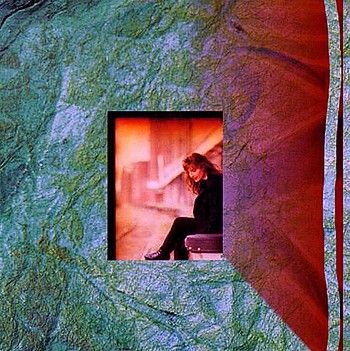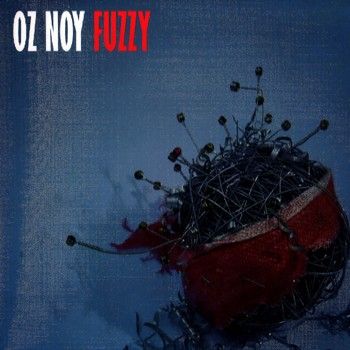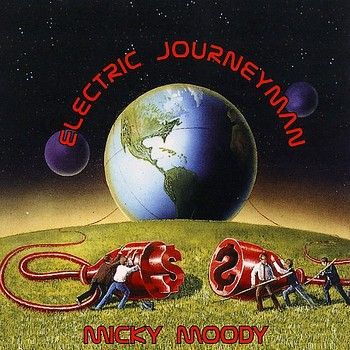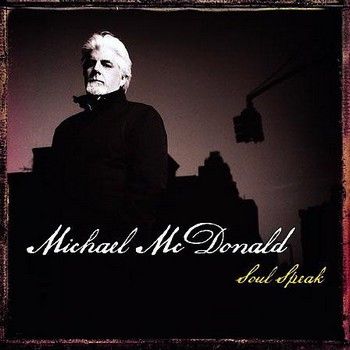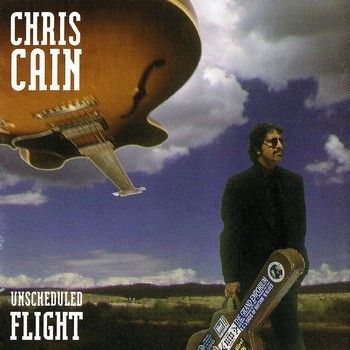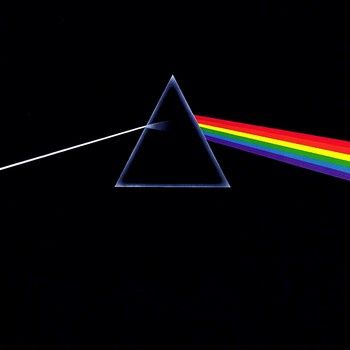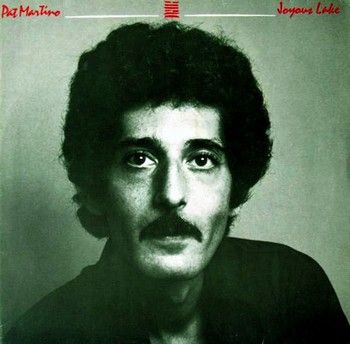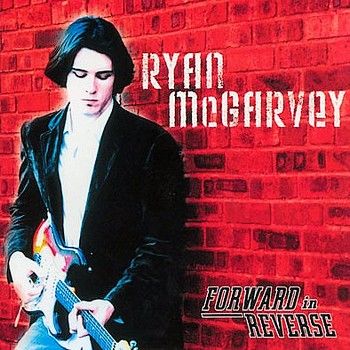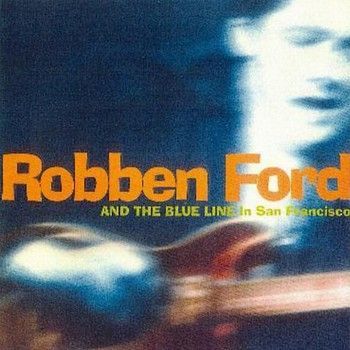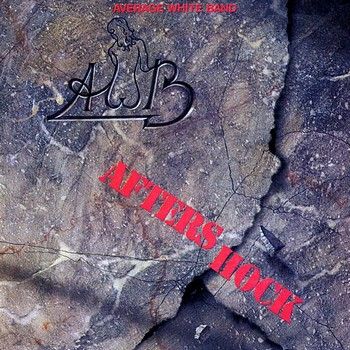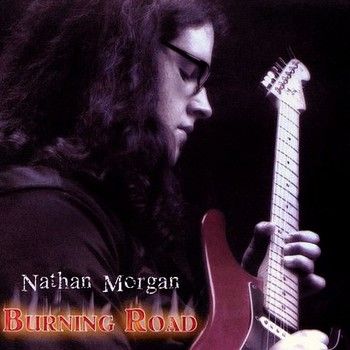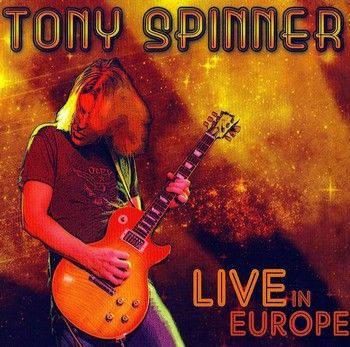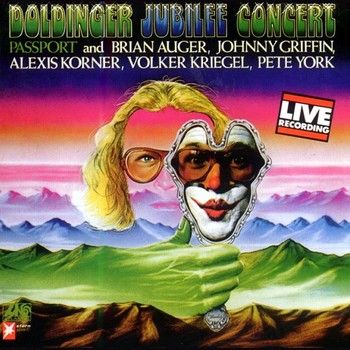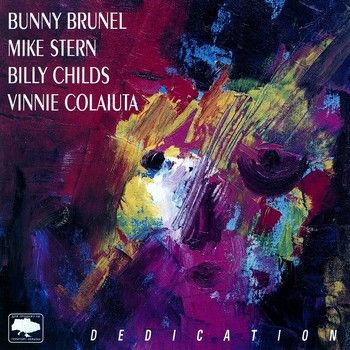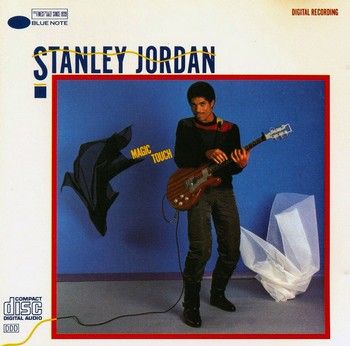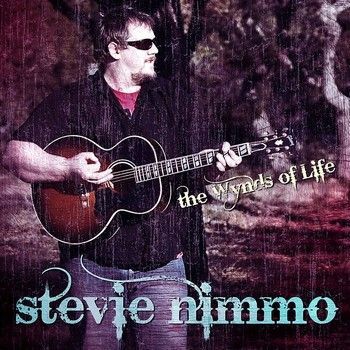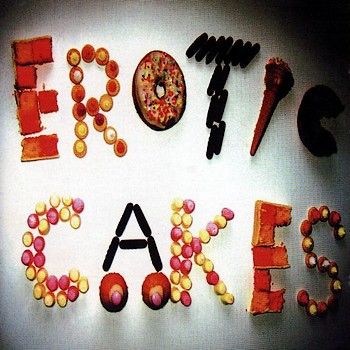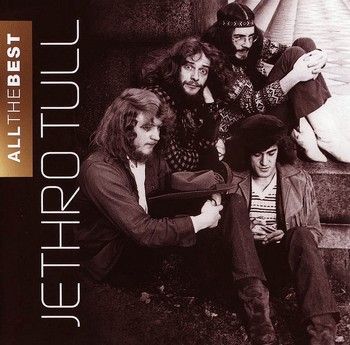
Jethro Tull - All The Best - 2012 - EMI
A forty track compilation from the legendary British progressive rock band, Jethro Tull. There are countless Tull compilation albums in circulation. This album contains mostly new stereo mixes and digital remasters of many of the band's best songs from the 1968-1999 period. As usual, there are tracks omitted which could be included here, but this argument about a band's best songs will always apply to compilation albums. If you are a diehard Tull fan, this album may not interest you greatly. If you are unfamiliar with Jethro Tull, this is a very good introductory album to this monumental band's music. Listen to Tull's classic "Songs from the Wood", "Aqualung", and "Thick as a Brick" albums, Ian Anderson's "Walk into Light" and "Divinities: Twelve Dances with God" albums, and Martin Barre's "A Trick of Memory" album
[All tracks @ 160 Kbps: The 2 rar files = 197.6 Mb]
DISC ONE
1. A New Day Yesterday (2001 Digital Remaster) 4:08
2. Sweet Dream (2001 Digital Remaster) 4:04
3. Witches Promise (2001 - Remaster) 3:53
4. Teacher (Original UK Mix) (2001 Digital Remaster) 4:07
5. A Song For Jeffrey (2001 Digital Remaster) 3:18
6. Bouree (2001 Digital Remaster) 3:45
7. Fat Man (2001 Digital Remaster) 2:51
8. My Sunday Feeling (2001 Digital Remaster) 3:39
9. Dharma For One (2008 Digital Remaster - Mono) 4:12
10. Nothing Is Easy (2001 Digital Remaster) 4:22
11. With You There To Help Me (2001 Digital Remaster) 6:20
12. To Cry You A Song (2001 Digital Remaster) 6:16
13. Aqualung (2001 Digital Remaster) 6:35
14. Cross-Eyed Mary (New Stereo Mix) 4:07
15. Wond'ring Aloud (New Stereo Mix) 1:52
16. Hymn 43 (New Stereo Mix) 3:15
17. Thick As A Brick (Edit No 1) (2001 Digital Remaster) 3:00
18. Living In The (Slightly More Recent) Past (Live) 3:21
19. Life Is A Long Song (2001 Digital Remaster) 3:17
20. Nursie (2004 Digital Remaster) 1:35
DISC TWO
1. Locomotive Breath (New Stereo Mix) 4:38
2. Bungle In The Jungle (2002 Digital Remaster) 3:33
3. Skating Away (On The Thin Ice Of The New Day) (2002 Digital Remaster) 4:08
4. Minstrel In The Gallery (2001 Digital Remaster) 3:50
5. Salamander (2002 Digital Remaster) 2:49
6. Too Old To Rock 'N' Roll (2001 Digital Remaster) 3:55
7. Songs From The Wood (2003 Digital Remaster) 4:52
8. The Whistler (2003 Digital Remaster) 3:30
9. Heavy Horses (2001 Digital Remaster) 3:20
10. Dun Ringill (2004 Digital Remaster) 2:38
11. Crossfire (2004 Digital Remaster) 3:51
12. Broadsword (2005 Digital Remaster) 5:02
13. Pussy Willow (2005 Digital Remaster) 3:52
14. Under Wraps #2 (2005 Digital Remaster) 2:12
15. Jump Start (2005 Digital Remaster) 4:52
16. She Said She Was A Dancer (2005 Digital Remaster) 3:39
17. Kissing Willie (2006 Digital Remaster) 3:33
18. This Is Not Love (2006 Digital Remaster) 3:59
19. Roots To Branches (2006 Digital Remaster) 5:12
20. Bends Like A Willow 4:54
All tracks composed by Ian Anderson except "Bouree" by Johann Sebastian Bach & Ian Anderson, "Dharma For One" by Ian Anderson & Clive Bunker, & "Aqualung" by Ian and Jennie Anderson
BIO
Jethro Tull was a unique phenomenon in popular music history. Their mix of hard rock; folk melodies; blues licks; surreal, impossibly dense lyrics; and overall profundity defied easy analysis, but that didn't dissuade fans from giving them 11 gold and five platinum albums. At the same time, critics rarely took them seriously, and they were off the cutting edge of popular music since the end of the 1970s. But no record store in the country would want to be without multiple copies of each of their most popular albums (Benefit, Aqualung, Thick as a Brick, Living in the Past), or their various best-of compilations, and few would knowingly ignore their newest releases. Of their contemporaries, only Yes could claim a similar degree of success, and Yes endured several major shifts in sound and membership in reaching the 1990s, while Tull remained remarkably stable over the same period. As co-founded and led by wildman-flautist-guitarist-singer-songwriter Ian Anderson, the group carved a place all its own in popular music. Tull had its roots in the British blues boom of the late '60s. Anderson (b. Aug. 10, 1947, Edinburgh, Scotland) had moved to Blackpool when he was 12. His first band was called the Blades, named after James Bond's club, with Michael Stephens on guitar, Jeffrey Hammond-Hammond (b. July 30, 1946) on bass and John Evans (b. Mar. 28, 1948) on drums, playing a mix of jazzy blues and soulful dance music on the northern club circuit. In 1965, they changed their name to the John Evan Band (Evan having dropped the "s" in his name at Hammond's suggestion) and later the John Evan Smash. By the end of 1967, Glenn Cornick (b. Apr. 24, 1947, Barrow-in-Furness, Cumbria, England) had replaced Hammond-Hammond on bass. The group moved to Luton in order to be closer to London, the center of the British blues boom, and the band began to fall apart, when Anderson and Cornick met guitarist/singer Mick Abrahams (b. Apr. 7, 1943, Luton, Bedfordshire, England) and drummer Clive Bunker (b. Dec. 12, 1946), who had previously played together in the Toggery Five and were now members of a local blues band called McGregor's Engine. In December of 1967, the four of them agreed to form a new group. They began playing two shows a week, trying out different names, including Navy Blue and Bag of Blues. One of the names that they used, Jethro Tull, borrowed from an 18th-century farmer/inventor, proved popular and memorable, and it stuck. In January of 1968, they cut a rather derivative pop-folk single called "Sunshine Day," released by MGM Records (under the misprinted name Jethro Toe) the following month. The single went nowhere, but the group managed to land a residency at the Marquee Club in London, where they became very popular. Early on, they had to face a problem of image and configuration, however. In the late spring of 1968, managers Terry Ellis and Chris Wright (who later founded Chrysalis Records) first broached the idea that Anderson give up playing the flute, and to allow Mick Abrahams to take center stage. At the time, a lot of blues enthusiasts didn't accept wind instruments at all, especially the flute, as seminal to the sound they were looking for, and as a group struggling for success and recognition, Jethro Tull was just a little too strange in that regard. Abrahams was a hardcore blues enthusiast who idolized British blues godfather Alexis Korner, and he was pushing for a more traditional band configuration, which would've put him and his guitar out front. As it turned out, they were both right. Abrahams' blues sensibilities were impeccable, but the audience for British blues by itself couldn't elevate Jethro Tull any higher than being a top club act. Anderson's antics on-stage, jumping around in a ragged overcoat and standing on one leg while playing the flute, and his use of folk sources as well as blues and jazz, gave the band the potential to grab a bigger audience and some much-needed press attention. They opened for Pink Floyd on June 29, 1968, at the first free rock festival in London's Hyde Park, and in August they were the hit of the Sunbury Jazz & Blues Festival in Sunbury-on-Thames. By the end of the summer, they had a recording contract with Island Records. The resulting album, This Was, was issued in November. By this time, Anderson was the dominant member of the group on-stage, and at the end of the month Abrahams exited the band. The group went through two hastily recruited and rejected replacements, future Black Sabbath guitarist Tony Iommi (who was in Tull for a week, just long enough to show up in their appearance on the Rolling Stones' Rock 'N Roll Circus extravaganza), and Davy O'List, the former guitarist with the Nice. Finally, Martin Barre (b. Nov. 17, 1946), a former architecture student, was the choice for a permanent replacement. It wasn't until April of 1969 that This Was got a U.S. release. Ironically, the first small wave of American Jethro Tull fans were admiring a group whose sound had already changed radically; in May of 1969, Barre's first recording with the group, "Living in the Past," reached the British number three spot and the group made its debut on Top of the Pops performing the song. The group played a number of festivals that summer, including the Newport Jazz Festival. Their next album, Stand Up, with all of its material (except "Bouree," which was composed by Johann Sebastian Bach) written by Ian Anderson, reached the number one spot in England the next month. Stand Up also contained the first orchestrated track by Tull, "Reasons for Waiting," which featured strings arranged by David Palmer, a Royal Academy of Music graduate and theatrical conductor who had arranged horns on one track from This Was. Palmer would play an increasingly large role in subsequent albums, and finally join the group officially in 1977. Meanwhile, "Sweet Dream," issued in November, rose to number seven in England, and was the group's first release on Wright and Ellis' newly formed Chrysalis label. Their next single, "The Witch's Promise," got to number four in England in January of 1970. The group's next album, Benefit, marked their last look back at the blues, and also the presence of Anderson's longtime friend and former bandmate John Evan — who had long since given up the drums in favor of keyboards — on piano and organ. Benefit reached the number three spot in England, but, much more important, it ascended to number 11 in America, and its songs, including "Teacher" and "Sossity, You're A Woman," formed a key part of Tull's stage repertory. In early July of 1970, the group shared a bill with Jimi Hendrix, B.B. King, and Johnny Winter at the Atlanta Pop Festival in Byron, GA, before 200,000 people. By the following December, after another U.S. tour, Cornick had decided to leave the group, and was replaced on bass by Anderson's childhood friend Jeffrey Hammond-Hammond. Early the following year, they began working on what would prove to be, for many fans, the group's magnum opus, Aqualung. Anderson's writing had been moving in a more serious direction since the group's second album, but it was with Aqualung that he found the lyrical voice he'd been seeking. Suddenly, he was singing about the relationship between man and God, and the manner in which — in his view — organized religion separated them. The blues influences were muted almost to non-existence, but the hard rock passages were searing and the folk influences provided a refreshing contrast. That the album was a unified whole impressed the more serious critics, while the kids were content to play air guitar to Martin Barre's high-speed breaks. And everybody, college prog rock mavens and high-school time-servers alike, seemed to identify with the theme of alienation that lay behind the music. Aqualung reached number seven in America and number four in England, and was accompanied by a hugely successful American tour. Bunker quit the band to get married, and was replaced by Anderson's old John Evan Smash bandmate Barriemore Barlow (b. Sept. 10, 1949). Late in 1971, they began work on their next album, Thick as a Brick. Structurally more ambitious than Aqualung, and supported by an elaborately designed jacket in the form of a newspaper, this record was essentially one long song steeped in surreal imagery, social commentary, and Anderson's newly solidified image as a wildman-sage. Released in England during April of 1972, Thick as a Brick got as high as the number five spot, but when it came out in America a month later, it hit the number one spot, making it the first Jethro Tull album to achieve greater popularity in American than in England. In June of 1972, in response to steadily rising demand for the group's work, Chrysalis Records released Living in the Past, a collection of tracks from their various singles and British EPs, early albums, and a Carnegie Hall show, packaged like an old-style 78 rpm album in a book that opened up. At this point, it seemed as though Jethro Tull could do no wrong, and for the fans that was true. For the critics, however, the group's string ran out in July of 1973 with the release of A Passion Play. The piece was another extended song, running the length of the album, this time steeped in fantasy and religious imagery far denser than Aqualung; it was divided at the end of one side of the album and the beginning of the other by an A.A. Milne-style story called "The Hare That Lost His Spectacles." This time, the critics were hostile toward Anderson and the group, attacking the album for its obscure lyrical references and excessive length. Despite these criticisms, the album reached number one in America (yielding a number eight single edited from the extended piece) and number 13 in England. The real venom, however, didn't start to flow until the group went on tour that summer. By this time, their sets ran to two-and-a-half hours, and included not only the new album done in its entirety ("The Hare That Lost His Spectacles" being a film presentation in the middle of the show), but Thick As a Brick and the most popular of the group's songs off of Aqualung and their earlier albums. Anderson was apparently unprepared for the searing reviews that started appearing, and also took the American rock press too seriously. In the midst of a sell-out U.S. tour, he threatened to cancel all upcoming concerts and return to England. Fortunately, cooler heads prevailed, especially once he recognized that the shows were completely sold out and audiences were ecstatic, and the tour continued without interruption. It was 16 months until the group's next album, War Child — conceived as part of a film project that never materialized — was released, in November of 1974. The expectations surrounding the album gave it pre-order sales sufficient to get it certified gold upon release, and it was also Tull's last platinum album, reaching number two in America and number 14 in England. The dominant theme of War Child seemed to be violence, though the music's trappings heavily featured Palmer's orchestrations, rivaling Barre's electric guitar breaks for attention. In any case, the public seemed to respond well to the group's return to conventional length songs, with "Bungle in the Jungle" reaching number 11 in America. Tull's successful concert tour behind this album had them augmented by a string quartet. During this period, Anderson became involved with producing an album by Steeleye Span, a folk-rock group that was also signed to Chrysalis, and who had opened for Tull on one of their American tours. Their music slowly begun influencing Anderson's songwriting over the next several years, as the folk influence grew in prominence, a process that was redoubled when he took up a rural residence during the mid-'70s. The next Tull album, Minstrel in the Gallery, showed up ten months later, in September of 1975, reaching number seven in the United States. This time, the dominant theme was Elizabethan minstrelsy, within an electric rock and English folk context. The tracks included a 17-minute suite that recalled the group's earlier album-length epic songs, but the album's success was rather more limited. The Jethro Tull lineup had been remarkably stable ever since Clive Bunker's exit after Aqualung, remaining constant across four albums in as many years. In January of 1976, however, Hammond-Hammond left the band to pursue a career in art. His replacement, John Glascock (b. 1953), joined in time for the recording of Too Old to Rock 'n Roll, Too Young to Die, an album made up partly of songs from an un-produced play proposed by Anderson and Palmer, released in May of 1976. The group later did an ITV special built around the album's songs. The title track, however (on which Steeleye Span's Maddy Prior appeared as a guest backing vocalist), became a subject of controversy in England, as critics took it to be a personal statement on Anderson's part. In late 1976, a Christmas EP entitled Ring Out Solstice Bells got to number 28. This song later turned up on their next album, Songs From the Wood, the group's most artistically unified and successful album in some time (and the first not derived from an unfinished film or play since A Passion Play). This was Tull's folk album, reflecting Anderson's passion for English folk songs. Its release also accompanied the band's first British tour in nearly three years. In May of 1977, David Palmer joined Tull as an official member, playing keyboards on-stage to augment the richness of the group's concert sound. Having lasted into the late '70s, Jethro Tull now found itself competing in a new musical environment, as journalists and, to an increasing degree, fans became fixated on the growing punk rock phenomenon. In October 1977, Repeat (The Best of Jethro Tull, Vol. 2), intended to fill an anticipated 11 month gap between Tull albums, was released on both sides of the Atlantic. Unfortunately, it contained only a single new track and never made the British charts, while barely scraping into the American Top 100 albums. The group's next new album, Heavy Horses, issued in April of 1978, was Anderson's most personal work in several years, the title track expressing his regret over the disappearance of England's huge shire horses as casualties of modernization. In the fall of 1978, the group's first full-length concert album, the double-LP Live-Bursting Out, was released to modest success, accompanied by a tour of the United States and an international television broadcast from Madison Square Garden. 1979 was a pivotal and tragic year for the group. John Glascock died from complications of heart surgery on November 17, five weeks after the release of Stormwatch. Tull was lucky enough to acquire the services of Dave Pegg, the longtime bassist for Fairport Convention, which had announced its formal (though, as it turned out, temporary) breakup. The Stormwatch tour with the new lineup was a success, although the album was the first original release by Jethro Tull since This Was not to reach the U.S. Top 20. Partly thanks to Pegg's involvement with the Tull lineup, future tours by Jethro Tull, especially in America, would provide a basis for performances by re-formed incarnations of Fairport Convention. The lineup change caused by Glascock's death led to Anderson's decision to record a solo album during the summer of 1980, backed by Barre, Pegg, and Mark Craney on drums, with ex-Roxy Music/King Crimson multi-instrumentalist Eddie Jobson on violin. The record, A, was eventually released as a Jethro Tull album in September of 1980, but even the Tull name didn't do much for its success. Barlow, Evan, and Palmer, however, were dropped from the group's lineup with the recording of A, and the new version of Jethro Tull toured in support of the album. Jobson left once the tour was over, and it was with yet another new lineup — including Barre, Pegg, and Fairport Convention alumnus Gerry Conway (drums) and Peter-John Vettesse (keyboards) — that The Broadsword and the Beast was recorded in 1982. Although this album had many songs based on folk melodies, its harder rocking passages also had a heavier, more thumping beat than earlier versions of the band had produced, and the use of the synthesizer was more pronounced than on previous Tull albums. In 1983, Anderson confined his activities to his first official solo album, Walk Into Light, which had a very different, synthesizer-dominated sound. Following its lackluster performance, Anderson revived Jethro Tull for the album Under Wraps, released in September of 1984. At number 76 in the U.S., it became the group's poorest selling album, partly a consequence of Anderson's developing a throat infection that forced the postponement of much of their planned tour. No further Tull albums were to be released until Crest of a Knave in 1987, as a result of Anderson's intermittent throat problems. In the meantime, the group appeared on a German television special in March of 1985, and participated in a presentation of the group's work by the London Symphony Orchestra. To make up for the shortfall of new releases, Chrysalis released another compilation, Original Masters, a collection of highlights of the group's work, in October of 1985. In 1986, A Classic Case: The London Symphony Orchestra Plays the Music of Jethro Tull was released on record; and Crest of a Knave performed surprisingly well when it was issued in September of 1987, reaching number 19 in England and number 32 in America with the support of a world tour. Crest of a Knave was something of a watershed in Tull's later history, though nobody would have guessed it at the time of its release. Although some of its songs displayed the group's usual folk/hard rock mix, the group was playing louder than usual, and tracks like "Steel Monkey," had a harder sound than any previous record by the group. In 1988, Tull toured the United States as part of the celebration of the band's 20th anniversary. In July, Chrysalis issued 20 Years of Jethro Tull, a 65-song boxed-set collection covering the group's history up to that time, containing most of their major songs and augmented with outtakes and radio performances. In February of 1989, the band won the Grammy Award for Best Hard Rock/Metal Performance for Crest of a Knave. Suddenly, they were stars again, and being declared as relevant by one of the top music awards in the industry; a fact that kept critics buzzing for months over whether the group deserved it before finally attacking the voting for the Grammy Awards and the membership of its parent organization, the National Association of Recording Arts and Sciences. Rock Island, another hard rocking album, reached a very healthy number 18 in England during September of the same year, while peaking only at 56 in America, despite a six-week U.S. tour to support the album. In 1990, the album Catfish Rising did less well, reaching only 27 in England and 88 in America after its release in September. And A Little Light Music, their own "unplugged" release, taped on their summer 1992 European tour, only got to number 34 in England and 150 in the United States. Despite declining numbers, the group continued performing to good-sized houses when they toured, and the group's catalog performed extremely well. In April of 1993, Chrysalis released a four-CD 25th Anniversary Box Set — evidently hoping that most fans had forgotten the 20th anniversary set issued five years earlier — consisting of remixed versions of their hits, live shows from across their history, and a handful of new tracks. Meanwhile, Anderson continued to write and record music separate from the group on occasion, most notably Divinities: Twelve Dances with God, a classically-oriented solo album (and a distinctly non-Tull one) on EMI's classical Angel Records. J-Tull.Com followed in 1999. © Bruce Eder © 2010 Rovi Corporation. All Rights Reserved http://www.allmusic.com/cg/amg.dll?p=amg&sql=11:3ifqxqe5ldse~T1
